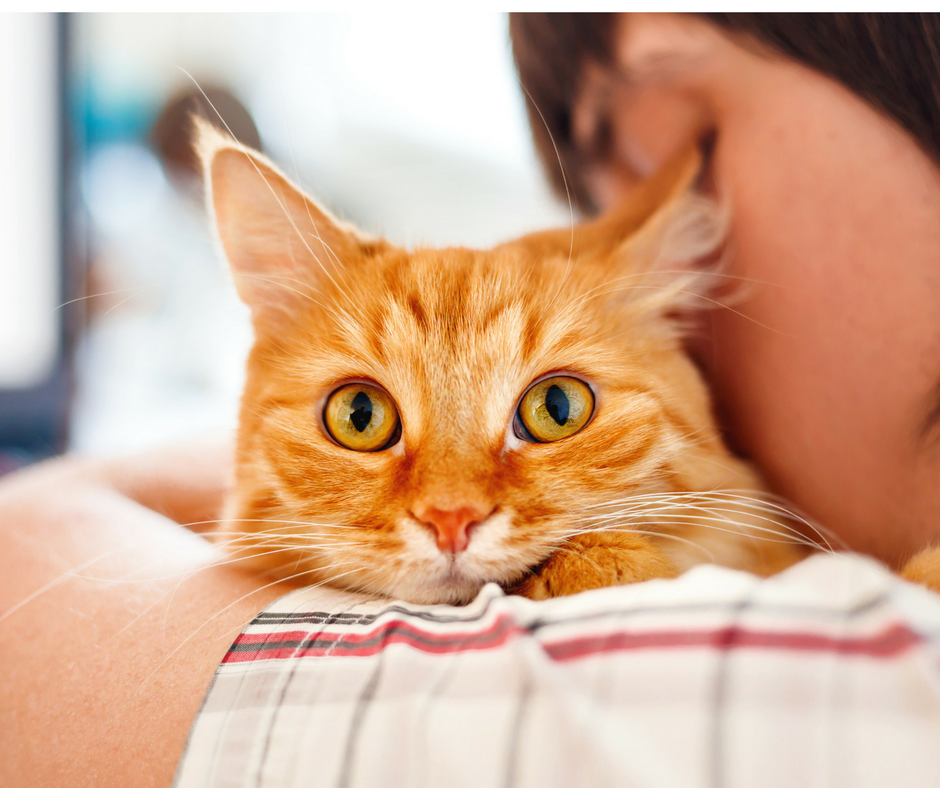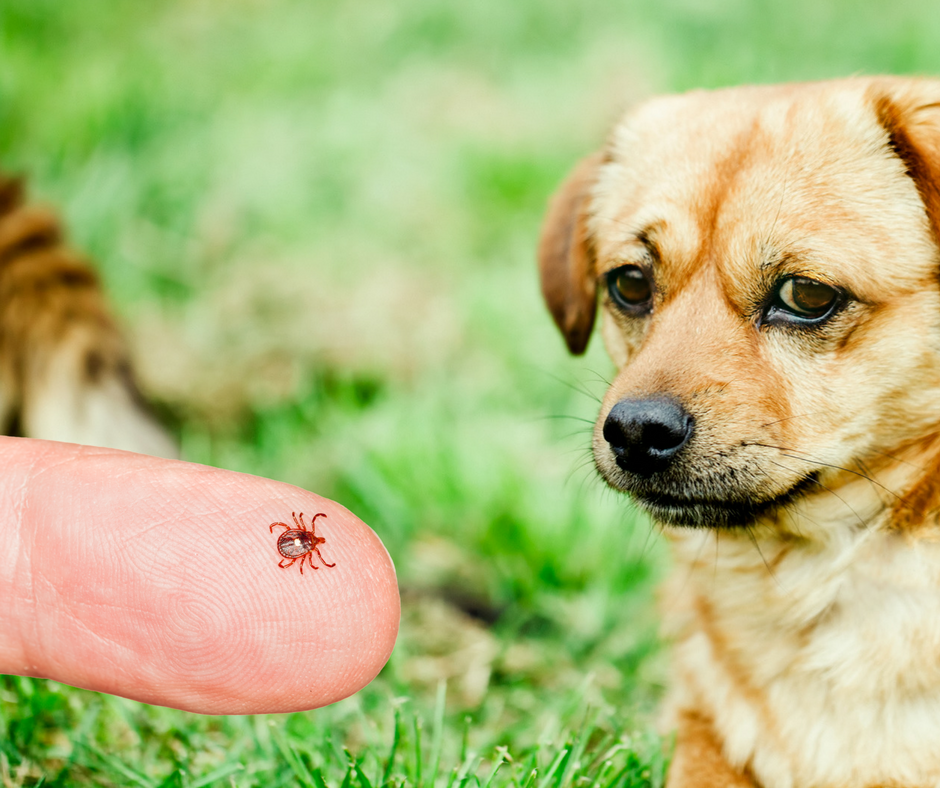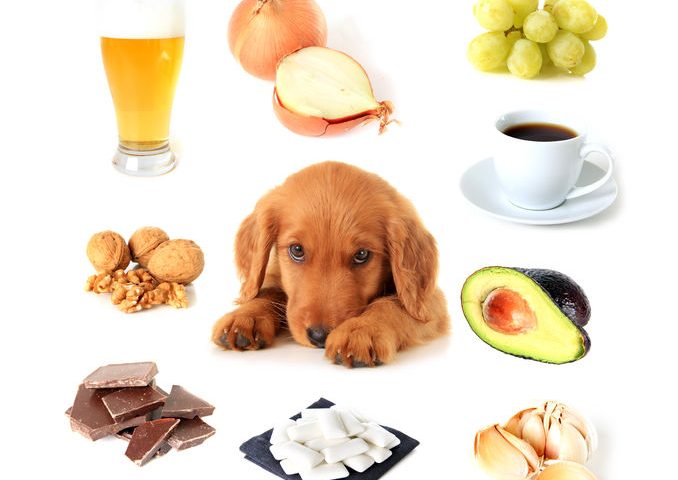
The Ins and Outs of Pet Health Insurance
March 7, 2018
The Growing Threat of Ticks
April 17, 2018Veterinary medicine has grown in leaps and bounds over the last few decades. With advances in medicine pet families and veterinarians are also learning more about what is safe and unsafe for our pets. This week (3rd week in March) is dedicated specifically to pet poisons and poison awareness. While there are substances that are commonly known poisons, there may be some that are new to you as a pet owner. Also just as important, we will help you navigate what to do in a situation where you suspect your pet may have ingested a poisonous substance.
Toxic Foods:
Foods sweetened with xylitol, chocolate, grapes, and raisins are some of the more commonly known foods that pet parents know are pet poisons. But there are many other foods that can cause problems if ingested.
- The pulp of citrus fruits can cause stomach upset if eaten in large enough quantities. What may come as a surprise, is that grapefruits are specifically toxic to dogs. The peel, stems, and leaves of grapefruit not only cause stomach upset but can also cause lethargy and seizures.
- Pitted fruits are also a hazard for pets. Cherries, apricots, plums, and peaches are some of the more common pitted fruits found in our kitchens. Again, the pulp of the fruit is not the big concern. While if enough of the pulp is ingested, they can still cause stomach upset. The big concern for these items is that the pits of these fruits contain cyanide like properties. If your pet chews or ingests enough of the pits the cyanide properties in the seeds can cause difficulty breathing, dilated pupils, and death. Another concern is that the pits can become an intestinal blockage. While this isn’t a poisoning it is another reason to keep these fruits away from your pets.
- Apple seeds and core contain toxins. Apples are another fruit that most pet parents consider a healthy snack for their pets. However, just like with the pitted fruits mentioned in this post, the seeds and the core of apples contain cyanide-like chemicals. This makes it important to remove the seeds and core before letting your pet have apples as a treat. Also, if you have an apple tree in your yard be sure to pick up any fallen fruit so your pet does not ingest whole apples.
- Macadamia nuts are toxic to pets, however, veterinarians are unsure exactly what chemical in macadamia nuts is the cause of the toxicity. If ingested, macadamia nuts can cause fever, lethargy, and ataxia (the inability to control body movements).
- Caffeine and alcohol are also toxic to pets. Caffeine in drinks can cause hyperactivity, an elevated heart rate, seizures, and death. Also, our pet’s bodies were not designed to process alcohol safely. Beer, wine, and spirits can cause damage to your pet’s central nervous system and heart.
- For pets, avocados may not be safe. Avocados are praised for being a source of “healthy fat” for people. But, the flesh of the avocado causes stomach upset, not because of the fat but because of a substance called Persin. And similar to pitted fruits, the seed of the avocado is a concern for intestinal blockage.
Toxic Plants:
Whether in your home our out on a walk, your pet will encounter a variety of plant species throughout his lifetime. Most of us do not know what plants are pet poisons or which parts of the plants are hazardous.
- Tomato plants are common in many backyard gardens. While the tomato fruit is not considered to be toxic, the stems and the leaves of the plant contain toxins. If chewed on or ingested the tomato plant can cause lethargy, tremors, and stomach upset.
- Lilies are beautiful plants and are common in homes and apartments. The entire lily plant (flower, leaves, bulb, etc.) are toxic. These plants can cause tremors, stomach upset, and are potentially deadly especially to cats.
- Oleander is common along streets and in backyards. You can find oleander in California and other states with warmer climates. The entire part of the oleander plant is toxic. The plant causes heart issues so toxicity may not be obvious.
What to Do If Your Pet Ingests Something Toxic
So what do you do if you suspect your pet chewed or ingested something toxic? First, call your veterinarian. Getting medical care right away could save your pet’s life. Then collect the evidence of what may have been chewed on. It may help your veterinarian decide what course of action to take. If you suspect something was eaten outside your veterinarian’s normal business hours call your closest 24 hour emergency center. The veterinarians at the emergency center will be able to see your pet any time of day or night.
If your pet ate something with which the veterinarian is unfamiliar, she will likely call the ASPCA Pet Poison Control hotline (888-426-4435). This is a 24 hour hotline that guides veterinarians and pet families on what to do when a substance is ingested. There is a fee for using the hotline, however the ASPCA Poison Control is the go-to resource when there is a potential toxicity in animals. Care for your pet will vary depending what he ate and how much he ate as well. Some pets will have vomiting induced (to have the pet regurgitate whatever was ingested and stop the body from processing it). While other pets will require medications, hospitalization, and 24 hour monitoring.

